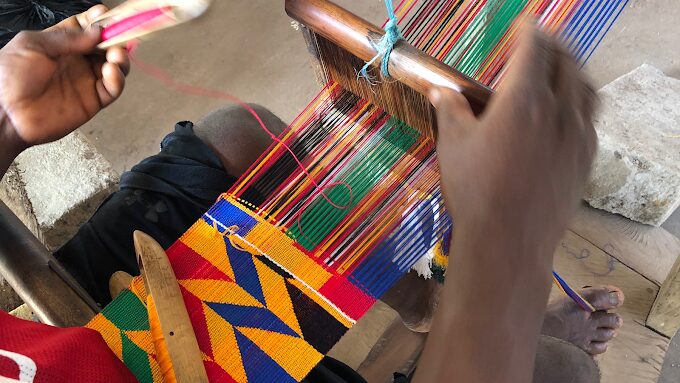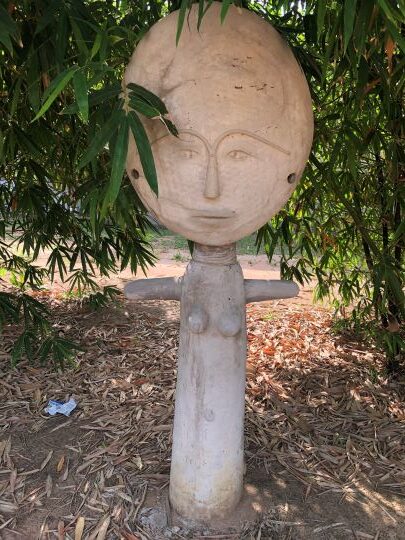Kente has been adored for decades because of its cultural value and traditional importance in Ghana. Legends says, one hunter went hunting and found the spider beautifully weaving a web to live in. The hunter then replicated the art of weaving from the spider using cotton when he came back to his village and gradually the art of Kente weaving became very famous. In Ghana, Kente weaving are a very popular craft among the Ewe’s of the Volta Region especially the people of Tafi Abuife and Agotime Kpetoe as well as the people of Bonwire and Adanwomase of the Asante descent. The beautiful Kente cloth is weaved into stripes of several pieces in the traditional Kente loom before they are joined together to make a whole cloth to fit. Kente cloth have several uses ranging from sewing them into beautiful garments for functions such as chief durbars, engagements, naming ceremonies, religious ceremonies, funerals and sometimes for the decorations of homes and car interiors. Kente cloth comes in different colors, texture, weight and pattern. Selecting a Kente cloth depends on ones choice and uses for them because each Kente design tells a story or has a meaning attached. Get one for yourself and feel the uniqueness of the Ghanaian pride.



